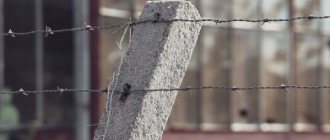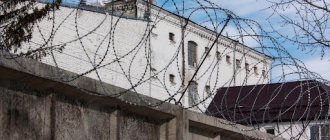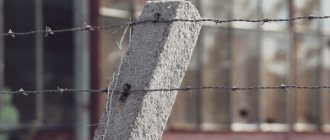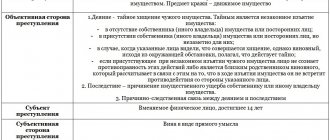Article 109 of the Code of Criminal Procedure of the Russian Federation establishes a clear prescription for the use of one of the procedural measures. Imprisonment can be used not only as a punishment, but also as an interim measure. The procedural area has guidelines for the procedure for assigning such a measure and the timing of its election for those involved in the case. Arrest implies restriction of freedom of movement and location for a short time. Custody can be applied to a person with the status of a suspect, as well as an accused. This measure is applied only to those who can flee from justice.
Multi-channel free hotline Legal advice on criminal law. Every day from 9.00 to 21.00
Moscow and region: +7 (495) 662-44-36
St. Petersburg: +7 (812) 449-43-40
Article 109 (terms of detention)
Temporary restriction of freedom of movement acts as a kind of guarantee that the principle of the law enforcement system - the punishability of the act - will be implemented.
The Criminal Procedure Code allows for several options for being in custody, differing in time period:
- Part 1 of the article states that during the investigation, the maximum allowable time for arrest is 2 months. At the same time, Part 2 clarifies that objective reasons preventing the completion of the investigation are a clear reason to extend the action of the measure taken to 6 months. There is also a caveat that six months is not the limit. If a serious or especially serious crime is being investigated, it is possible to extend the imposed restriction on a person for a longer time.
- Part 3 clarifies that there are exceptions to the established rules. They relate to the disclosure of particularly serious acts. Here the judge can impose a measure of arrest for up to 12 months. To obtain such a decision, a number of special factors must be present in the circumstances of the investigation.
- Part 4 prescribes that in other categories of cases it will be impossible to extend the period of a person’s stay in custody.
Detention in custody according to the Code of Criminal Procedure of the Russian Federation is carried out according to a clear procedure, as well as release and extension.
The Code prohibits extending the duration of this measure beyond 12 months in total (except in exceptional cases). The accused must be released if the legally permitted period of arrest has expired.
The judge's decision on this type of petition may be:
- about extension ─ in the absence of violations and there are grounds;
- about refusal of the application.
The total amount of time a suspect will be arrested will be determined by two dates: the day the arrest decision was made and the day the conviction was issued.
Changes are allowed in the final date, since the investigation of a case does not always end with the accusation of the person who was originally suspected. Here, the end of the prison term may be determined by the date the charges are dropped or the person is released. Accordingly, the period from the date of arrest until the completion of the investigation cannot exceed the period of detention established by law.
The legal provision makes it clear that in special cases the period runs continuously.
We are talking about situations:
- The person was temporarily detained and a little later a preventive measure was prescribed - being under arrest. The first days of arrest will be counted towards the total period of detention.
- Initially, a mild measure was assigned, and then it was changed to imprisonment. The period of a mild measure in the form of arrest at home will be included during the term in the temporary detention facility (temporary detention center).
- The suspect was sent for treatment to a psychiatric institution from the KPZ (pre-trial detention cell) or temporary detention facility. By analogy with previous cases, the time spent on compulsory treatment will be included in the overall calculation of the period of detention.
- A similar rule is used for initial detention on the territory of a foreign state, carried out as the provision of international assistance and execution of agreements. An arrest by law enforcement agencies of a foreign state can be made at the request of the Russian Federation. The time in custody and for transporting the prisoner will be counted towards the total period of pre-trial detention.
The legislator establishes clear actions for calculating the time of detention, including repeated arrests. Such arrests may be made at different times as part of one or more overlapping criminal cases.
The time period here will be perceived as the general course of the period with a break when the person was released from custody.
Here the general course of the period is established. When deciding whether to re-arrest, the judge will be required to take into account the initial time spent by the accused in custody. This provision affects arrests and detentions carried out in the framework of one or more related criminal cases. If an individual is involved in different criminal cases, then the period of arrest for them will be considered separately.
Art. 109 of the Code of Criminal Procedure of the Russian Federation regulates the specifics of consideration of this issue. It is prohibited to consider this issue in court, at which the suspect or accused himself is not present. The only exception is when the main person for whom the measure of restriction is chosen is being treated in a psychiatric institution and, according to specialist forecasts, will remain there for a long time. If a person involved in the case is put on the wanted list, the issue of his detention will be resolved when he is found and brought to court.
The choice of a preventive measure and the establishment of its period of validity is permitted only by the court.
The petition must include not only a request, but also an indication of the specific type of suppression, as well as a clear time period. The judge examines the validity and justification of such a requirement, and then announces his decision.
What are the preventive measures?
The fact is that this preventive measure presupposes not only the deprivation of a person’s freedom, but also his complete isolation from other citizens. For example, the current Code of Criminal Procedure of the Russian Federation, in addition to detention, provides for two more preventive measures that are associated with the isolation of the accused (suspect): a ban on certain actions with a restriction on leaving the premises and house arrest. But these preventive measures are, without a doubt, much milder than detention, since the prohibition of certain actions implies only partial isolation of citizens, consisting in the inability to leave their housing at a time determined by the court, and house arrest, although it consists of complete isolation, however, the citizen is kept in his own home and can communicate with family members and other persons living with him, unless a separate ban is established in this part by the court.
Despite the fact that Article 108 of the Code of Criminal Procedure of the Russian Federation allows for the placement of citizens in pre-trial detention centers in exceptional cases, the courts are formally concerned with establishing the real fact of the existence of grounds for choosing this preventive measure, and in fact, detention still remains preventive measure No. 1 in Russia. In the vast majority of cases, the court decides to detain the accused solely due to the gravity of the charge. Moreover, the term of detention is often extended solely due to the gravity of the charge, although this is directly prohibited by the clarifications of the Supreme Court of Russia. Thus, according to paragraph 21 of the Resolution of the Plenum of the Supreme Court of Russia No. 41 of December 19, 2013. “On the practice of courts in applying legislation on preventive measures in the form of detention, house arrest, bail and prohibition of certain actions”, the severity of the charge and the possibility of imposing a sentence of imprisonment for a long term may serve as a basis for taking the suspect or accused into custody due to the fact that he can hide from the inquiry, preliminary investigation, only at the initial stages of criminal proceedings. However, in the future, these circumstances alone cannot be considered sufficient to extend the validity of this preventive measure.
As for the period of detention, it, according to Part 1 of Article 109 of the Code of Criminal Procedure of the Russian Federation , is no more than 2 months. The specified time period is allotted for investigators to complete the investigation of the criminal case. However, in the vast majority of cases this does not happen, and the terms of detention are extended by court order.
Legal commentary on Article 109 of the Code of Criminal Procedure of the Russian Federation
Art.
109 of the Code of Criminal Procedure of the Russian Federation with legal comments ─ these are clarifications on the main provisions of the norm. The most used and frequently used period is 2 months. If this period is not enough to issue an indictment, you can file a petition to increase the originally assigned period to 6 months. The total time of detention cannot exceed six months. Exceptional cases of restriction of freedom are allowed for up to 1 year. They affect the area of especially serious crimes. After all, the punishment for this category of acts is the harshest: the death penalty or life imprisonment. The legislative norm has its own limits of what is permissible. In complex investigations, the maximum time a suspect can stay in custody is 18 months. This is the limit allowed by the legislator. If it is not possible to prove the guilt of the person in custody, all suspicions are removed, and the investigation will have to look for another criminal. The crime being investigated must be particularly complex. There must be good reason to believe that the person involved will definitely try to escape.
Petitions of this type must be drawn up and signed on behalf of the head of the regional prosecutor's office.
The legislation allows only district courts or similar military departments to consider requests for a preventive measure.
Leading legal consultants say that extending the time spent under arrest by more than 18 months is impossible and should not be allowed by investigative authorities. Even if a person spends one day beyond the legal period in a temporary detention facility, the lawyer already has the right to demand his urgent release and write a complaint.
Comments to the article clarify that the current Code of Criminal Procedure establishes periods of detention of suspects and accused persons exclusively for the investigation stage. The procedure for arrest during a trial does not apply to this legal norm, because we are talking about different procedural stages.
The timing of the use of restrictive measures at the stages of inquiry and legal proceedings is regulated by other legal norms. It is noteworthy that the period of consideration of a completed case does not have a time frame for detention.
When ordering the suppression of a criminal's hiding, a time setting is used - days and months. The passage of time will begin from the day the person was actually taken into custody.
The entire list of grounds for granting a request is set out in Article 97:
- the emergence of new circumstances, due to which the documents were sent for further investigation;
- return of the case from the court with a requirement to eliminate deficiencies or obstacles;
- the lawyer and the defendant did not have enough time to study the collected materials on the case.
The commentary to the article notes that the immediate release of a person after the expiration of the established period is a mandatory requirement of the criminal process.
Examples of practice: court decisions and sentences under Article 109 of the Code of Criminal Procedure of the Russian Federation
The court does not limit the time a person can be held in custody.
He will remain there until the end of the trial. However, the Constitutional Court of the Russian Federation in its clarifications indicated a requirement for Russian courts: every 3 months to consider the issue of the objectivity of the current measure before passing a verdict. The length of stay of citizens of the Russian Federation in custody during criminal proceedings, at all stages of the process, has a strictly established period. But the Constitutional Court of the Russian Federation in its Determinations dated June 6, 2003 N 184-O, dated July 15, 2003 N 308-O, dated April 23, 2013 N 548-O and dated April 22, 2014, drew attention to the fact that there is a law without clear terms of permissible detention, and its application cannot be regarded as a constitutional violation of the rights of a citizen.
Naturally, law enforcement, investigative and judicial authorities are required to know the current legal provisions on periods of detention. When considering complex cases, the court may take advantage of exceptions to this rule and make a strict decision on restriction of freedom. However, infringement of human rights, even if he is a suspect or accused, is not allowed.
Based on the current practice of making decisions on preventive measures, the following conclusions can be drawn:
- For categories of light severity of acts, detention is not assigned.
- Strict measures are applied in 100% of cases for serious and especially serious crimes.
- For an average offense, the choice of this type of measure is 50% to 50%, depending on the identity of the suspect and other circumstances of the case.
- When considering the issue of a preventive measure, the court is obliged to take into account the objectivity and necessity of such a decision in each individual case.
The listed factors indicate that not in all situations such a measure of detaining a suspect is used.
Now the court has begun to actively use house arrest as a guarantee that the person will remain under investigation until the end of the trial. Just remember that in order to call a person, the investigative authorities send a notice in advance.
If a person fails to appear at least once in response to such a notification, the investigator has every right to raise the issue of changing the assigned measure to a more stringent one - detention.
Official website of the Supreme Court of the Russian Federation
The presence of sufficient information that the suspect or accused will hide from the investigative authorities and the court, will continue to engage in criminal activity or otherwise interfere with the proceedings in a criminal case is not an absolute basis for choosing a preventive measure in the form of detention.
Violation by the accused of a previously chosen preventive measure in certain cases also cannot be recognized as an indisputable reason for his arrest. This is stated in the draft resolution of the plenum of the Supreme Court (SC) of the Russian Federation on judicial practice in criminal cases. Do not rush to arrest
The highest authority indicates that none of the preventive measures, including detention, can be chosen for a suspect or accused, unless during the court hearing sufficient evidence is established to believe that he will hide from the inquiry or preliminary investigation or court, will continue to engage in criminal activity, destroy evidence, or otherwise interfere with criminal proceedings. “Courts should keep in mind that the presence of such data does not yet indicate the need to apply the most severe preventive measure in the form of detention to a person. When deciding on the choice of a preventive measure and on the extension of its validity, the court is obliged in each case to discuss the possibility of applying in relation to a suspect or accused of committing a crime of any category other, milder than detention, a preventive measure, regardless of whether there is a petition for this. parties, as well as the stage of criminal proceedings,” follows from the text of the resolution.
In addition, courts are obliged to consider the possibility of applying a more lenient preventive measure to a suspect or accused, even if he hid from the preliminary investigation authorities or from the court, violated a previously chosen preventive measure, or does not have a permanent place of residence in the territory of the Russian Federation, but on the condition committing a crime of minor gravity.
Preventive measure for entrepreneurs
The Supreme Court reminds the courts of the specifics of choosing a preventive measure against individual entrepreneurs, as well as members of the management body of a commercial organization suspected or accused of committing crimes under parts 1–4 of Article 159, Articles 1591–1593, 1595, 1596, 160, 165 and 201 Criminal Code of the Russian Federation.
Thus, when receiving a request for detention of these persons, the courts should check whether the materials provide specific information confirming the conclusion that the crime was not committed in connection with the accused (suspect) carrying out business activities or managing property belonging to him, used in purposes of entrepreneurial activity, and also not in connection with the exercise of his powers to manage the organization. In the absence of the specified information, such a petition cannot be satisfied, the Supreme Court notes.
Calculation of the term of arrest
The highest authority emphasizes the importance of correctly setting the end date of the period of detention. To do this, courts need to take into account the provisions of Part 10 of Article 109 of the Code of Criminal Procedure of the Russian Federation.
“The period of detention includes the time: for which the person was detained as a suspect; a ban on leaving the premises in which he lives during certain periods of time; house arrest; forced stay in medical organizations providing medical or psychiatric care in inpatient conditions, by court decision; during which a person was detained in the territory of a foreign state upon a request for legal assistance or extradition to the Russian Federation in accordance with Article 460 of the Code of Criminal Procedure of the Russian Federation,” the plenum explains.
Verification of the investigation's arguments
When considering requests to extend the period of detention of the accused, the court should check the validity of the arguments of the preliminary investigation authorities about the impossibility of completing the investigation in a timely manner.
“In the case when a petition to extend the period of detention is brought before the court repeatedly and on the basis of the need to carry out investigative actions specified in previous petitions, the court must find out the reasons why they were not carried out. If the reason, in the opinion of the court, is the ineffective organization of the investigation, this may be one of the circumstances leading to the refusal to satisfy the petition,” the text of the document says.
The Supreme Court also points out that the need in itself for further investigative actions cannot act as the only and sufficient basis for extending the period of detention of the accused. The court's decision to extend the period of arrest must be based on factual data confirming the need to maintain this preventive measure.
Application of collateral
The Plenum draws the attention of the courts that when considering petitions for the selection of preventive measures in the form of house arrest and detention, as well as for the extension of these measures, the possibility of applying bail to the suspect or accused should be discussed if there are grounds for this. In this case, the court has the right to bring this issue up for discussion between the parties and on its own initiative.
“If the court comes to the conclusion that the assignment of bail in itself is not sufficient to achieve the purpose of applying a preventive measure, it has the right, in accordance with Part 81 of Article 106 of the Code of Criminal Procedure of the Russian Federation, to additionally impose on the suspect or accused the obligation to comply with one or more prohibitions provided for in Part 6 of the article 1051 of the Code of Criminal Procedure of the Russian Federation, citing in his decision the reasons why he came to the conclusion about the need to apply such prohibitions,” explains the Supreme Court.
Nikita Shiryaev









